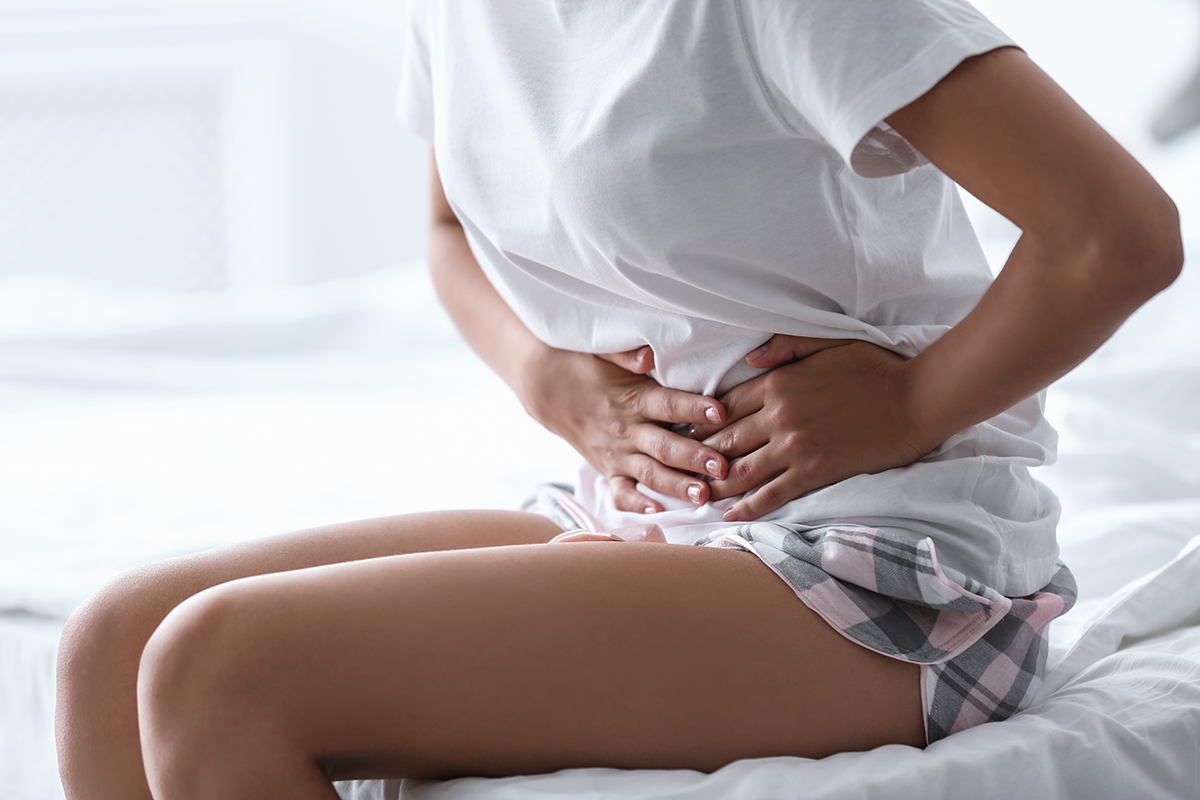Chronic Pelvic Pain
Overview
Chronic Pelvic Pain (CPP) is classed as a pain in the pelvic area that lasts longer than 6 months. It affects 1 in 6 women!
Chronic Pelvic Pain feels different for every woman and may be felt anywhere below the belly button and into the pelvic area and is present most days.
Sometimes the cause of this pain can be difficult to diagnose, however the good news is that it doesn't mean it cannot be treated! CPP is often sometimes to referred as persistent pelvic pain. Read below for more information.

Symptoms
What is Chronic Pelvic Pain?
Some women will suffer from cyclical pelvic pain which is where the pain occurs during the time of your menstrual cycle and is often associated with painful periods or endometriosis.
Chronic Pelvic Pain is when the pain is present most days and may be due to endometriosis, adenomyosis or other related conditions listed below. In some cases, CPP can be non-gynaecological and might relate to bladder, gastrointestinal, neurological or musculoskeletal conditions.
Sometimes with CPP, there can be more than one condition present at the same time causing pain.
There are a number of primary pain factors that may result in Chronic Pelvic Pain (CPP). These include, endometriosis, adenomyosis or infections. While pain usually indicates specific injury to some part of the body, CPP is very different. Often the initial problem is addressed, or the severity of the symptoms lessened, but the pain persists because of changes to the nervous system, muscles or other tissues. For instance, you often feel muscles tense when you have been injured around the area of trauma. Similarly, local disturbances occur in the pelvis, affecting the bowel, bladder, muscles, connective tissue and nerves of the pelvis (the secondary pain factors), Often these secondary factors become the predominant problem, overshadowing the original disease process which may no longer be detectable.
Causes of Chronic Pelvic Pain
Some of the gynaecological causes of CPP include:
- Painful periods
- Endometriosis
- Ovarian Cysts
- Adhesions
- Fibroids
- Pelvic inflammation disease
- Vulval and vaginal conditions
- Nerve pain syndromes such as pudendal neuralgia or pain from previous surgery
We know that earlier identification and treatment of young women with severe period or pelvic pain or other symptoms can assist in the management and prevention of CPP.
Diagnosis
Investigation of Chronic Pelvic Pain
A detailed history of your symptoms, medical and surgical history will help Dr Brooke O'Brien to start the process of finding the causes of CPP and decide what further investigations might be helpful
Keeping a symptom diary, which includes your tracking of your periods and pain over 2-3 cycles can help to reveal a pattern. Other symptoms such as bloating, nausea, bowel habits for example can help assist in your diagnosis and treat your symptoms.
Medical tests can often be helpful in diagnosing CPP and are tailored to your symptoms. In some cases, a laparoscopy may be required to investigate and treat the primary cause of your pain.
Treatment
Options for Treatment of Chronic Pelvic Pain
Pelvic Pain, as with any chronic pain condition, can be managed through a variety of measures.
Persistent pain requires a multidisciplinary approach to develop an individual management care plan for you to achieve the best outcome. This is where a range of women's health professionals work together.
This team should involve your general practitioners and gynaecologist, and may also involve other specialists such as physiotherapist, pain psychologists, pain physicians, pain rehabilitation, dieticians, naturopaths and acupuncturists.
Your treatment would depend on the underlying cause/s and may include:
- Lifestyle changes such as regular exercise, good sleeping patterns, stress reduction, dietary modification, and reduced smoking and caffeine intake
- Pacing yourself
- Counselling or Psychotherapy to help you cope and learning daily techniques
- Physiotherapy
- Complimentary therapies such as massage, mindfulness, or acupuncture
- Pain medication (if often treating chronic pain)
- Hormonal medications to control period pain and in some instances suppress your period
Surgery may be required if the primary cause of your chronic pelvic pain has not been addressed:
- A Laparoscopy may be used to treat gynaecological problems such as endometriosis, ovarian cysts, or pelvic adhesions
- Hysterectomy is rarely needed but can be helpful in certain cases such as severe adenomyosis
Dr Brooke O'Brien has a keen interest in treating CPP, where other specialists have been unable to help you. The causes of CPP are varied and complex and you need a doctor and team who will listen and work at finding solutions for you.


Women's Pelvic Pain Specialist - Brisbane Northside
Please discuss your concerns and options for treatment with Dr Brooke O'Brien.
To find out more about the services we offer or to book an appointment, contact us today for a confidential discussion.
Book Your Chronic Pelvic Pain Appointment Online
Contact Us
At Nurture Gynaecology, Dr Brooke O’Brien and her women's health team value every single patient. Our practice is located in Everton Park, on the northside of Brisbane.
Contact us today to book your gynaecologist appointment with Dr Brooke O’Brien.
© 2022 Nurture Gynaecology | All Rights Reserved. | Privacy Policy | Sitemap
Developed by Procloud - Web Design Agency, Signage Brisbane